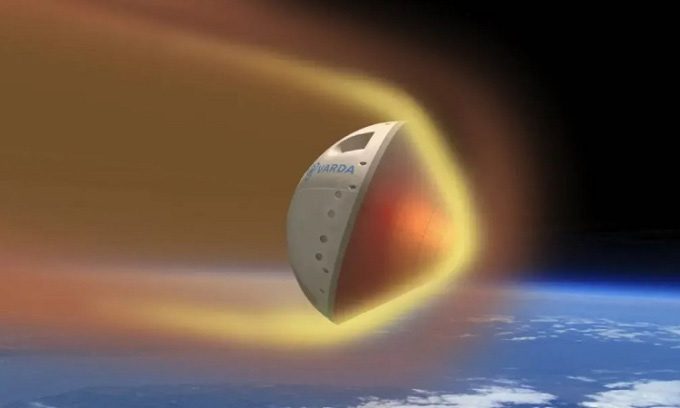Varda Space Industries is set to commence large-scale production of pharmaceuticals and various materials in Earth’s orbit via a small research capsule attached to a satellite.
The California-based startup Varda Space Industries has successfully launched its first satellite, W-Series 1, into orbit. The company aims to initiate the mass production of materials in space that cannot be created on Earth or can be developed more rapidly with higher quality in microgravity conditions. The solar panels of the first space-based manufacturing facility have oriented themselves towards the Sun and begun to deploy, Varda reported following the satellite’s launch during SpaceX’s Transporter-8 mission on June 13.

Simulation of Varda’s pharmaceutical manufacturing facility. (Photo: Varda Space Industries)
The W-Series 1 satellite carries a 90 kg research capsule designed for pharmaceutical studies. According to Varda, this capsule will detach and begin to operate in space while still connected to the structure that provides the necessary power, propulsion, and communication for navigation in the vacuum of space. In the initial missions, this structure will be supported by Rocket Lab. Subsequently, experiments will be conducted by a robotic system within the capsule.
Varda’s operations are based on scientific research demonstrating that protein crystals in space can form more perfect structures compared to those on Earth, where the formation process is affected by gravity. An example comes from research conducted by the pharmaceutical company Merck aboard the International Space Station. This study discovered that a more stable version of the pembrolizumab substance, used in the cancer drug Keytruda, could be produced under microgravity conditions.
The first mission of Varda will focus on the development of ritonavir in space. This drug is commonly used to treat HIV and has recently been applied in the treatment of COVID-19. The company has sufficient funding to support at least its first four missions.
After Varda’s experiments are completed, engineers on the ground will evaluate whether the research capsule is ready to return to Earth. If approved, the satellite will propel the research capsule back towards Earth. It will then plummet through the atmosphere and land via parachute, allowing for the retrieval of pharmaceutical materials.
This mission is not without challenges, as Varda will need to demonstrate that their robot can conduct experiments remotely while still functioning after enduring the intense forces of a rocket launch. The return journey is equally difficult, as re-entering the atmosphere at speeds of 28,968 km/h will generate extreme heat and plasma buildup.
Varda was founded by former SpaceX aerospace engineer Will Bruey and Delian Asparouhov. Their goal is to mass-produce products in space. “From stronger optical fibers to new lifesaving pharmaceuticals, there are numerous products used on Earth today that can only be manufactured in space,” Varda stated.





















































